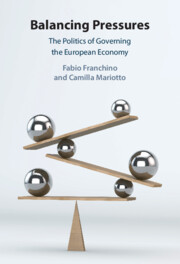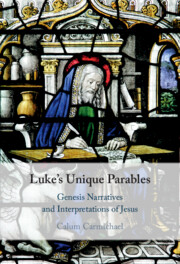Refine search
Actions for selected content:
88 results
9 - Concepts and Ideas in Suárez, Descartes and Beyond
-
-
- Book:
- A Philosophical History of the Concept
- Published online:
- 30 January 2026
- Print publication:
- 19 February 2026, pp 194-211
-
- Chapter
- Export citation
Lessons from the past? Cultural memory in Dutch integration policy
-
- Journal:
- European Journal of Political Research / Volume 57 / Issue 3 / August 2018
- Published online by Cambridge University Press:
- 02 January 2026, pp. 740-758
-
- Article
- Export citation
Legitimation as justification: Foregrounding public philosophies in explanations of gradual ideational change
-
- Journal:
- European Journal of Political Research / Volume 58 / Issue 2 / May 2019
- Published online by Cambridge University Press:
- 01 January 2026, pp. 582-602
-
- Article
- Export citation
10 - Ideology
-
-
- Book:
- Explaining the History of American Foreign Relations
- Published online:
- 24 October 2025
- Print publication:
- 13 November 2025, pp 204-224
-
- Chapter
- Export citation
Neoclassical realist theory of populist foreign policy
-
- Journal:
- Review of International Studies , First View
- Published online by Cambridge University Press:
- 05 November 2025, pp. 1-20
-
- Article
-
- You have access
- Open access
- HTML
- Export citation
Chapter 1 - Making Humanities and Social Sciences come alive: The significance of curriculum in education
- from Part I - Humanities and Social Sciences curriculum
-
-
- Book:
- Making Humanities and Social Sciences Come Alive
- Published online:
- 02 August 2025
- Print publication:
- 14 August 2025, pp 2-15
-
- Chapter
- Export citation
Chapter 11 - The Natural Preconditions of Political Freedom
- from Part V - Reconciling between Freedom, External Authority, and Nature
-
-
- Book:
- Platonic Autonomy
- Published online:
- 07 August 2025
- Print publication:
- 31 July 2025, pp 235-255
-
- Chapter
- Export citation
3 - Catholicism and the Italian Welfare State in the Nineteenth Century
-
- Book:
- How Economic Ideas Evolve
- Published online:
- 06 June 2025
- Print publication:
- 10 July 2025, pp 66-95
-
- Chapter
- Export citation
1 - Introduction
-
- Book:
- How Economic Ideas Evolve
- Published online:
- 06 June 2025
- Print publication:
- 10 July 2025, pp 1-27
-
- Chapter
- Export citation
2 - Catholicism and the Formation of the German Welfare State
-
- Book:
- How Economic Ideas Evolve
- Published online:
- 06 June 2025
- Print publication:
- 10 July 2025, pp 28-65
-
- Chapter
- Export citation
1 - Introduction
- from Part I
-
- Book:
- Representants and International Orders
- Published online:
- 15 May 2025
- Print publication:
- 08 May 2025, pp 3-25
-
- Chapter
- Export citation

Balancing Pressures
- The Politics of Governing the European Economy
-
- Published online:
- 02 May 2025
- Print publication:
- 22 May 2025
Global social policy ideas in the COVID-19 crisis: Ideational change and continuity in the ILO, the OECD, the WHO, and the World Bank
-
- Journal:
- Journal of International and Comparative Social Policy / Volume 41 / Issue 1 / March 2025
- Published online by Cambridge University Press:
- 22 April 2025, pp. 1-15
-
- Article
-
- You have access
- Open access
- HTML
- Export citation
4 - European Intellectual History after the Global Turn
-
-
- Book:
- Globalizing Europe
- Published online:
- 06 March 2025
- Print publication:
- 13 March 2025, pp 56-65
-
- Chapter
- Export citation

Luke's Unique Parables
- Genesis Narratives and Interpretations of Jesus
-
- Published online:
- 28 February 2025
- Print publication:
- 06 March 2025
Chapter 8 - E. M. Forster
- from Part II - 1900–1945
-
-
- Book:
- The British Novel of Ideas
- Published online:
- 05 December 2024
- Print publication:
- 12 December 2024, pp 150-165
-
- Chapter
- Export citation
How Ideas and Strategic Learning Fostered the 2022 Agreement Between the Liberal Party of Canada and the New Democratic Party
-
- Journal:
- Canadian Journal of Political Science/Revue canadienne de science politique / Volume 57 / Issue 3 / September 2024
- Published online by Cambridge University Press:
- 28 November 2024, pp. 497-520
-
- Article
-
- You have access
- Open access
- HTML
- Export citation
28 - Epilogue
- from Part III - Diplomacy
-
- Book:
- Five Times Faster
- Published online:
- 24 October 2024
- Print publication:
- 07 November 2024, pp 373-377
-
- Chapter
- Export citation
5 - Uncovered Grave
- from Part I - Creative Processes
-
-
- Book:
- The Cambridge Companion to Composition
- Published online:
- 25 May 2024
- Print publication:
- 30 May 2024, pp 77-88
-
- Chapter
- Export citation
Creature Features: Character Production and Failed Explanations in Fiction, Folklore, and Theorizing
-
- Journal:
- Canadian Journal of Philosophy / Volume 53 / Issue 7-8 / October 2023
- Published online by Cambridge University Press:
- 24 May 2024, pp. 640-665
-
- Article
-
- You have access
- Open access
- HTML
- Export citation
